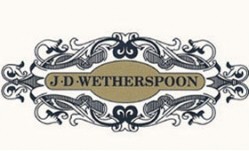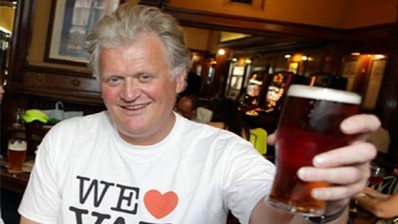Profits up at Wetherspoon but Martin condemns hefty tax bill

JD Wetherspoon (JDW) has this morning unveiled record sales of £996.3m and a 7.3 per cent increase in profit before tax, but faced a tax bill of over £400m.
Unveiling its preliminary results for the 52 weeks to 25 July 2010, the company’s chairman and founder Tim Martin criticised the government’s role in the downturn of the UK pub industry – blaming over regulation and increased taxation for the sector’s demise.
The company said that like-for-like sales for the period were largely flat – with a marginal increase of 0.1 per cent. However, the group said it remained confident of a “resilient performance” as in the six weeks to 5 September it revealed like-for-like sales had grown by 1.5 per cent and total sales had improved by 7.6 per cent.
Resilient
Like-for-like bar sales decreased by 0.8 per cent during the year, a slowdown from the decline of 2.5 per cent the year before. JDW said that like-for-like food sales were marginally up at 0.1 per cent.
In a statement, Martin said: “Our sales, profit and cashflow continue to be resilient and the performance of our recently opened pubs is encouraging. As previously indicated, we continue to believe that there are substantial opportunities for us to acquire new sites at reasonable prices."
The company opened 47 pubs during the year, 15 of which were freehold, and closed three others, resulting in a total estate of 775 pubs at the financial year-end. As was the case last year, most new openings were of existing pubs, with rents and development costs “being lower than historic trends”.
Increased tax and legislation
Martin added that while JDW had been responsible for £400m of tax payments over the year, government legislation aimed at reducing excessive alsohol consumption had been unfairly laid on pubs rather than supermarkets.
"The previous government adopted an approach of increasing taxes and regulations for pubs, greatly increasing the costs of running these businesses. Since the provision of a pint in a pub is far more labour intensive than a pint purchased in a supermarket, the effect of many of these taxes and regulations has been far greater for pubs than for supermarkets or other off-licensed premises."
“The net result of the previous government’s policy of increased taxes and regulations affecting the pub industry has been the closure of many pubs, often, but not always, in rural areas and villages, with consequent damaging effects on the social life of these communities.”
At home drinking
He warned that such a move was turning drinkers to the supermarkets.
“In addition, the government’s policies have resulted in pub consumption being replaced mainly by supermarket sales, resulting in a higher level of unsupervised drinking, and significantly lower taxes for the government.
“As alcohol consumption in pubs has declined sharply and off-sales have increased, alcohol related problems have worsened, which suggests that pub consumption is preferable to off-sales.”
Martyn Leek is news editor at BigHospitality's sister publication M&C Report.








